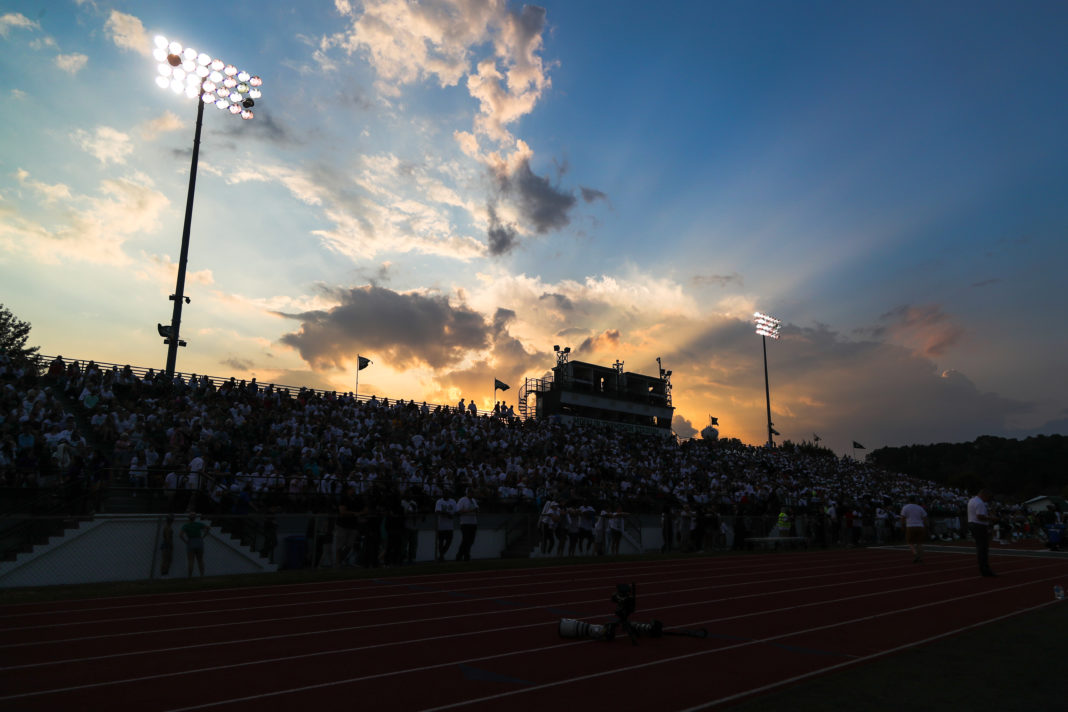Despite the cancelations of fall and winter sports in the PSAC for the 2020-21 season, the spring season may just be busier than ever in Slippery Rock. If, and only if, a return to play remains a viable option for all of those involved in the midst of the COVID-19 pandemic.
The Pennsylvania State Athletic Conference announced Wednesday morning that all winter sports had been canceled, one week after the conference had announced the cancelation of all fall sports. Though, after at least six member institutions opted in before Wednesday night’s deadline, there will be league championship opportunities for men’s and women’s swimming and men’s and women’s cross country.
Slippery Rock Director of Athletics Paul Lueken said he contacted PSAC Commissioner Steve Murray to tell him that SRU did not opt in to any fall or winter sports besides men’s and women’s cross country, citing cross country’s low-risk status and that SRU student-athletes would compete in just one meet.
However, that does not mean that the fall and winter sports will just be taking the semester off. Once SRU is back on campus in the spring, at some point, Lueken hopes that the fall and winter sports will be able to play a few contests. If things go well, he said each of those teams will possibly be able to have a Senior Day. Those contests just will not be mandated by the PSAC.
Rock football will likely not compete in any contests, running its spring semester as business as usual, all culminating in the traditional Green and White game in April.
“We do hope to play a game or a scrimmage with some opponents later in the spring,” Lueken said. “Most of it will be likely done in April.”
Those contests for fall and winter sports teams will not be played against PSAC mandated teams, with that schedule still undecided. Lueken said whoever it may be, their testing must meet SRU’s requirements for a contest to take place.
While disappointing for everyone involved in fall and winter athletics across the PSAC, the decision to cancel those conference mandated schedules did not come on a whim. That decision came in conjunction with the NCAA guidelines on COVID-19.
“The most important aspect that we took several weeks ago was that we made the choice to follow the NCAA’s guidelines,” Murray said. “There are many conferences in the country that are trying to play — even ones that you’re watching on TV — that aren’t necessarily following the NCAA’s guidelines. That’s their choice, that’s not a choice that we made, and that’s not what I would have recommended.”
The biggest in the PSAC, besides the obvious health and safety of student-athletes, coaches and staff, comes in the form of testing capabilities.
“If you add them all together, if we were playing everything in the spring semester, testing would cost over $350,000 here,” Lueken said. “That’s for every single sport, fall, winter and spring. We mapped it out. And that’s provided we can get a test for $30 apiece.”
The expensive testing requirements, especially for high-risk winter sports like basketball and wrestling, was the deciding factor in canceling fall and winter sports. Lueken said that while it wouldn’t be ideal, SRU would be able to handle the financial burden of COVID-19 testing.
“That isn’t the case for every member of the PSAC,” he said.
A few factors have led Murray and the PSAC to feel hopefully confident in the resumption of PSAC mandated scheduling for spring sports.
“We’re much more confident for the spring. In the first place, none of the spring sports are high risk categories; they’re either low risk or intermediate risk in the NCAA’s guidelines,” Murray said. “That takes down the testing levels considerably.”
By the spring, when the spring seasons would be starting in mid-to-late March, Murray felt hopeful that testing would be more widely available.
After having lost a majority of their schedules last spring, including all championship opportunities, the last thing Murray would want is another lost season. He said it’s going to be all hands on deck to prevent a scenario in which those student-athletes would lose two seasons.
In the case of SRU, if the fall and winter sports are not on a PSAC mandated schedule, testing requirements would be cut even lower.
“If you’re not competing and just practicing, we feel that we’re still going to test but not quite as often,” Lueken said. “One of the approaches we’re going to take for fall sports practicing in the spring and the winter sports practicing is they’ll practice three days in a row. Then they’ll be off for four days. During that four day period is when we’ll conduct testing.”
In that four day rest period, SRU student-athletes, coaches and staff will be able to go through testing and if a test comes back positive, SRU will be able to better handle the situation.
“Depending on if we get some positive tests, which invariably we will, we’ll have to do some pauses,” Lueken said. “If you saw the D-I ticker this morning, there’s probably 15 or 16 Division I basketball teams that are currently on pause for two weeks because they had positive tests.”
In NCAA guidelines, if one positive test comes from an individual sport’s “team bubble” of student-athletes, coaches and staff, there is a mandatory two week pause.
For SRU and all PSAC members, spring sports will follow PSAC mandated scheduling, unless notified otherwise by the conference.
“We’re pretty good in our protocol setup,” Murray said. “Right now, what we’ve got to focus on and pay attention to is how we can roll out testing. There are a couple of plans in place right now, mostly at the institutional level.”
As of now, Murray said Harrisburg will likely help with testing in the spring. While he’s confident that will translate to state schools, he’s hopefully members not in the Pennsylvania State System of Higher Education will receive assistance as well.
SRU’s slate of spring sports will begin in the middle of March, but the process is already underway.
“90% of our student-athletes did a good job [following guidelines in the fall], but it’s gotta be 100% in the spring,” Lueken said.
SRU athletics are on a break right now, with the semester winding down and Finals Week approaching. Once the semester is over, the university will go on a two-month break before resuming preparations for a spring sports season in early January.
“First two weeks back in January will be a resocialization period,” Lueken said. “We won’t have practices; we’ll start phasing into schedules, we’re still going to social distance, wear masks and all that stuff. We’re gonna temperature check our coaches and student-athletes every day. We’re gonna take every precaution we can to have safe opportunities for our student-athletes.”
Weather permitting, Lueken hopes to be back outside in February. But he acknowledged the risk in counting on that in western Pennsylvania.
With spring sports on the path back to PSAC mandated athletics, Lueken said he felt for all the student-athletes and coaches impacted by the decision to cancel fall and winter athletics.
“It’s disappointing that we’re not going to be able to play a PSAC schedule for fall and winter sports,” Lueken said. “It’s very disappointing. I get it, we went through it last year with spring sports.”
Murray said there was no right or wrong answer with how to safely compete during a pandemic, only answers. It’s tough to judge, he said, as no one really knows what’s right right now.
While the outcome isn’t perfect, not universal in like or dislike, that isn’t the point. Regardless, COVID-19 permitting, SRU will be making every effort to ensure that all student-athletes will be doing something.
“It’s gonna be busier this semester than it was last semester,” Lueken laughed.









